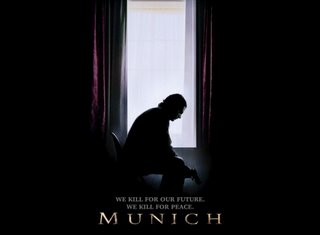Media Nights at Turquoise Cottage
Among the many questions that life throws up at advertising professionals in Delhi, there is one that’s paramount. The issue that most of us spend hours trying to fathom. We discuss it in great detail during office breaks (which is most of office hours), lunch hour (which stretches from one to somewhere between three thirty and four), and we analyse it threadbare during our drives to and from office. With multiple philosophical, psychological, sociological and financial layers to it, we come to office everyday trying to grapple with this fundamental question of our lives.
Ladies and Gentlemen, the number one question that every advertising professional asks himself or herself in Delhi is, "Why is Turquoise Cottage (TC) so overcrowded?"
For those of you not so privileged to be in the luxurious confines of South Delhi where water and power shortages have migrated to such a level that people are surprised to see running tap water, TC is one among the most popular pubs that plays mostly classical and modern hard rock and serves good liquor. And the crowd is very cool too. But that bit about music is very important because in Delhi, Jazzy B is considered to be alternative heavy metal.
With another branch in Gurgaon – which, to put it softly, is dead – TC is the most sought after place to party for the entire media crowd. For a very good reason too. Every Wednesday is a media night where there is a flat 50% off for those in the media.
So every Wednesday you’ll find TC brimming with both true media and the surrogate media crowd. Surrogate media crowd comprises of those fortunate human beings who do not happen to work for advertising agencies or media firms, but are unfortunate enough to have friends in media with clearly legible visiting cards. Put these two crowds together and you have the entire South, South West, South Central and South East Delhi in TC every Wednesday and even during the weekends.
I believe there is space for about 100-125 people in TC, which most of my friends who frequent the place like me, would claim is a gross exaggeration in itself. But on these special days, don’t be surprised if the actual figure is something like 12,000. It’s so crowded that I’m looking forward to a Lost & Found poster outside the pub very soon. I sincerely believe there are guys still wandering around TC, who have "lost" their girlfriends in the basement.
Last night I was in TC. And as usual, the crowd was cool, the music was rocking and everyone was jostling for enough space to bring their drinks to their mouths. That tiny movement might take anything between 5 to 15 minutes depending on who’s pushing you from where. In fact, after sometime, you forget the fact that you ever had hands. If your mobile is on vibrator and it’s in your trouser pockets, by the time your hand reaches that pocket, most of your genitalia would have been electrocuted.
OK, enough about elbow space and legroom. I am more interested in the fundamental natural act of breathing, or the lack of it. Because of an amazing system of ventilation done by a firm called "No Ventilation", the smokefilled basement makes you think you’re somewhere outside Pushkar trapped in a dust storm.
If you happen to be away from the bar, it might take an hour to get a drink which is roughly the time it takes to reach Manesar. And by the time you actually get to the bar you would have forgotten what you were drinking or more importantly, who you were with. There have also been documented cases of people forgetting who they were. To avoid all that, I was standing near the bar. So, every time someone wanted a drink, I would be pushed like an arch towards the bar with my face very close to the sink and would be in that position until that drink got served.
Even if you are not into headbanging, you’ll end up doing it at TC because that’s the only way you get to talk. "You need another drink?" my friend asks in a sign language. I violently bang my head to and fro to signal that I need one. And it’s is an amazing place to shake your legs. Just stand anywhere the designated dance floor, which is most of TC, and you’ll be pushed from all sides, and forget shaking your legs, your entire body will be swaying to Linkin Park. Which is exactly what I did last night. (And, last night there was an exceptionally hot girl in black with a nosering and a red dupatta to make the night all the more happening.)
All said and done, TC is definitely one among the best places to be seen at and to party in South Delhi.


